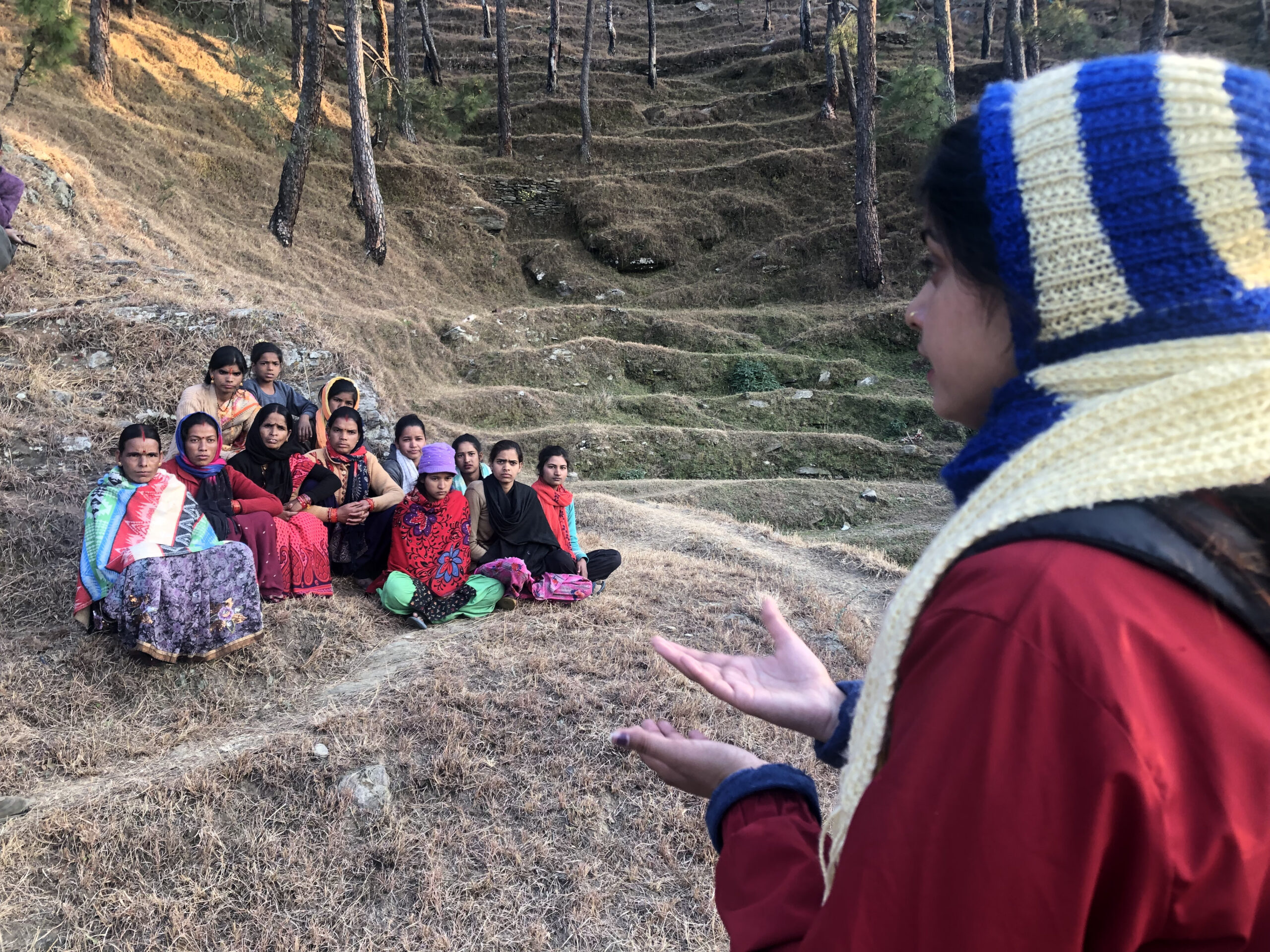In Uttarakhand in the Western Himalayas, we are working with communities on the front line of climate change. People are witnessing biodiversity loss, climate disasters and rising poverty. Our work provides sustainable water to communities living in some of the most remote and hard-to-reach areas in the world.
We are helping people like Boni Devi, who told us of her life in the mountains.
Named after the second highest mountain in India, which towers over her village, Boni Devi truly understands the connection between her people and the land in which they live. She talks passionately about her experience campaigning against deforestation in the Himalayas in the 80s, when coal companies moved into the area to fuel India’s growth, changing their cut off village forever. Since then, climate change has affected her village, making their lives harder than ever before as springs have dried up, and they have been unable to grow the crops they depend on for food.
As village leader, Boni led a group of women to dig hundreds of trenches and plant thousands of trees in the slopes above her village last year. They followed a plan put together by our experts to store water where it was needed and ensure that the springs that the village depends on flow perennially. It’s this combination of ancient wisdom and modern science that means that all future generations in Boni’s village will have the water they need to thrive.
Community participation
We work with village leaders to ensure that communities understand what we’re doing and why, and how this will affect them. By establishing water user groups (almost always women-led), we ensure there is a group of people trained to maintain springs and will participate in water management plans that best address their community needs.
Our work also includes education on the importance of sanitation and good hygiene, especially in and around the spring recharge area. We use a mixture of posters, leaflets and performance to ensure that every person gets the message, from school children to elders. Our field workers also go door to door to visit each household and understand any particular challenges they may face, such as disabilities.
Nature-based solutions
This is an area with a fragile ecosystem and rich biodiversity. Uttarakhand has suffered from large areas of deforestation to fuel India’s rapid growth, and our project takes place alongside conservation and reforestation efforts in the region.
Solutions vary depending on the geohydrology of each spring and the needs of each village. Members of the community contribute the labour required, accessing government funds that they are entitled to. The focus is on recharging stores of water in the ground, so that the springs flow perennially. The best ways to do this are digging trenches (similar to ponds) and planting grasses and trees, which allow water to percolate slowly.
By recharging 10 springs each year, your support means that 500 people every year have improved access to water for drinking and agriculture. This means more time in the day for women and children to pursue education or other opportunities; it means better nutrition and less waterborne disease for families; and it means the ability to adapt to the effects of climate change.
To find out more about this work and other project work in Uttarakhand, Frank Water’s CEO and Founder Katie Alcott MBE has written about her recent trip to India to visit some of the communities we work with, you can read about this work here.

